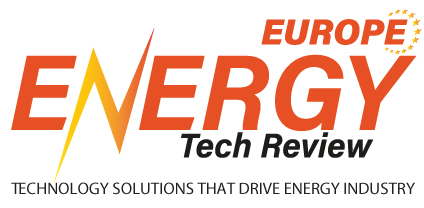 Paul Notti, Vice President of Sales and Business Development
Paul Notti, Vice President of Sales and Business DevelopmentESS Tech, Inc. is emerging as a frontrunner in this space with its American-made long-duration iron flow batteries. A leading manufacturer of LDES solutions, the company aims to accelerate decarbonization, safely and sustainably, through longer-lasting energy storage.
Unlike traditional lithium-ion batteries that have proven short-duration capabilities, ESS Tech’s solutions are designed to provide 10 plus hours of reliable power. With increasingly faster charging, the ESS batteries can maximize increase efficient energy consumption by capturing lowest cost solar and wind energy during their generation window.
“Our product’s ability to charge during the day and discharge during the night helps utilities, industrial customers, developers and independent power producers to achieve green base load,” says Paul Notti, Vice President of Sales and Business Development.
To maximize energy storage efficiency, ESS Tech leverages a proprietary iron-based electrochemistry that converts liquid iron into solid form through electroplating. The solid iron is deposited onto membranes of varying thickness, enabling a flexible and scalable storage capacity. During the discharge phase, the solid iron turns into liquid, releasing stored energy in a controlled and sustainable manner.
Scalability is another key feature of its solutions. The ability to offer over 10 potential discharge hours is controlled by the amount of electrolyte stored. Placing bigger tanks enables users to access longer discharge hours by adding more electrolyte. In addition, the electrolyte is made from earth-abundant elements like iron, salt and water, ensuring easily sourced, safe materials.
ESS’s batteries are built to last 25 years with no performance degradation and unlimited cycling. They are capable of enduring thousands of charge-discharge cycles without having to replace cells or electrolyte.
-
Our product’s ability to charge during the day and discharge during the night helps utilities, industrial customers, developers and independent power producers to achieve green base load
Safety and regulatory burdens typically associated with energy storage are also de-risked. Unlike Lithium-Ion batteries, ESS batteries do not contribute to thermal runaway, a growing concern as more lithium-ion battery fires impact communities. ESS can be safely deployed in residential areas and high-risk fire zones, fostering community-based resilience and grid reliability.
In one instance, a utility faced capacity constraints during peak evening hours. Their existing infrastructure, including generation capacity and distribution wires, was insufficient to meet the energy demands. ESS Tech placed a battery system within their service territory and implemented a non-wires alternative by deploying an LDES system. The battery was charged during the daytime when energy was plentiful and later discharged during peak hours to supplement grid capacity.
Utilities pursuing decarbonization have abundant solar energy during the day, with limited means to utilize or store it. Without LDES, the excess solar energy would be sold off, only to be replaced by fossil fuel-generated electricity that was either self-produced or purchased in the evening. With ESS Tech’s long-duration batteries, these utilities will be able to maximize clean energy consumption by storing excess local solar energy during the day and discharging it in the evening.
Keen to advance its solutions, ESS Tech has recently demonstrated 17 hours of energy discharge in laboratory settings. Already giving guidance that a 14-hour battery will be available by 2028, ESS continues to make steady progress, enabling carbon-free base load power. By delivering superior power systems, the company is empowering users to address the surging energy demand, amplifying the value potential of surplus sustainable energy.





